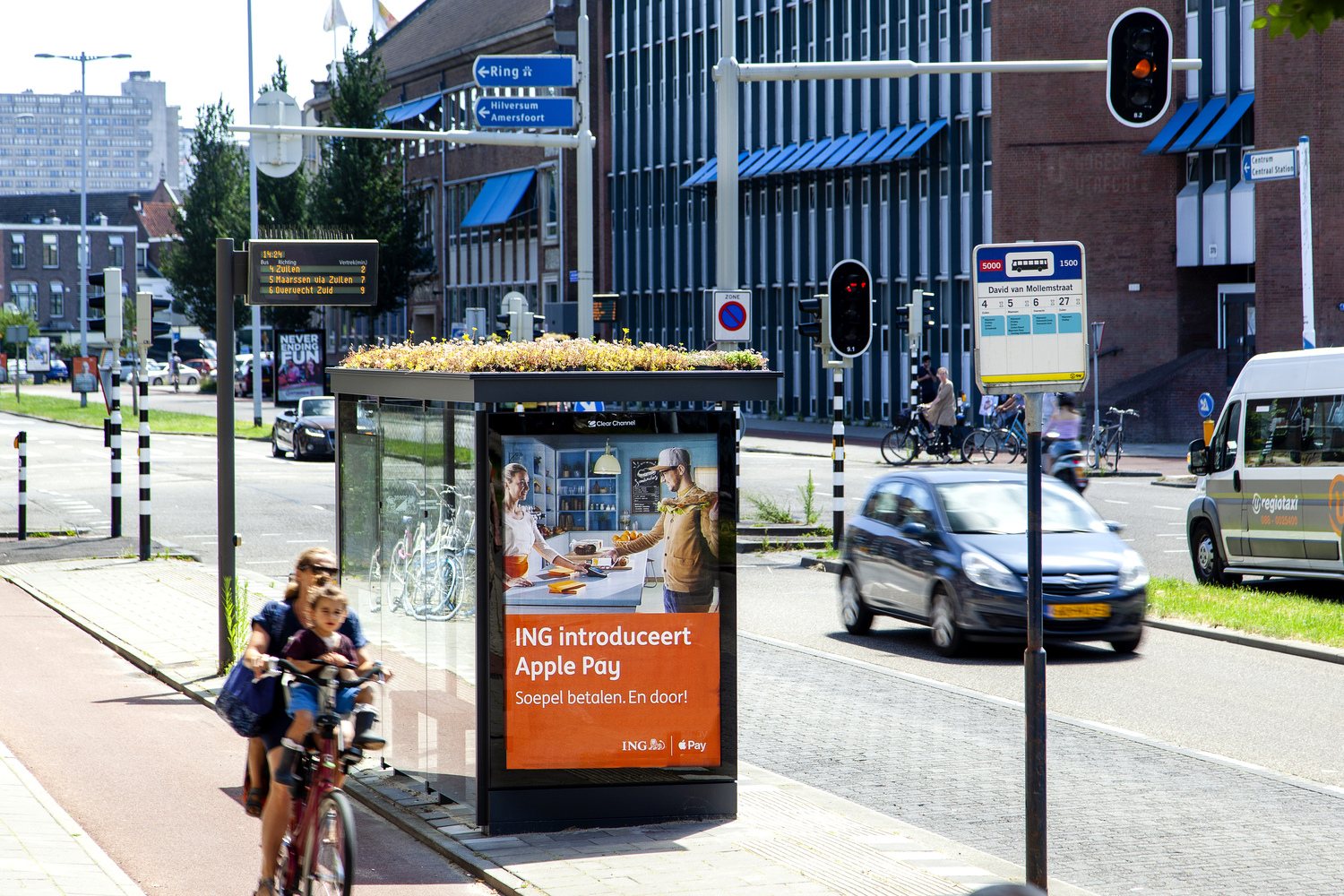Listen to the article!
Bus stops in Utrecht become bee havens
An Urban Refuge for Pollinators
In an innovative move, the Dutch city of Utrecht has transformed over 300 bus stops into mini green oases for bees and other pollinating insects. These stops feature roofs covered with Sedum, a succulent plant that attracts bees and requires minimal maintenance. Thanks to this solution, these bus shelters not only provide essential support to pollinators but also help reduce air pollution and capture rainwater, aiding the city in combating high summer temperatures and improving urban air quality.

The Importance of Biodiversity and the Role of Bees
This project stems from the understanding that bees are essential to the ecosystem: thanks to pollination, over one-third of global food production depends on their activity. However, the use of pesticides and climate change severely threaten their survival. Utrecht’s initiative, therefore, has a dual purpose: to preserve local bee populations and make urban areas more livable.
The stops are also equipped with LED lighting and eco-friendly materials, such as bamboo benches, to further reduce the project’s environmental impact.
Toward a Sustainable Future
This urban transformation is just one example of how Utrecht aims to become Europe’s “greenest” city, with the ambitious goal of achieving full sustainability by 2050. The city has already begun encouraging citizens to install green roofs on their homes by offering subsidies to those who wish to join this urban sustainability mission. Additionally, Utrecht is gradually replacing old buses with electric ones, promoting more environmentally friendly mobility.
This initiative can also inspire other cities to create new green spaces to support pollinators and enhance urban quality of life.
If you’re interested in learning how to support biodiversity, follow us for more insights on reuse and sustainability.


